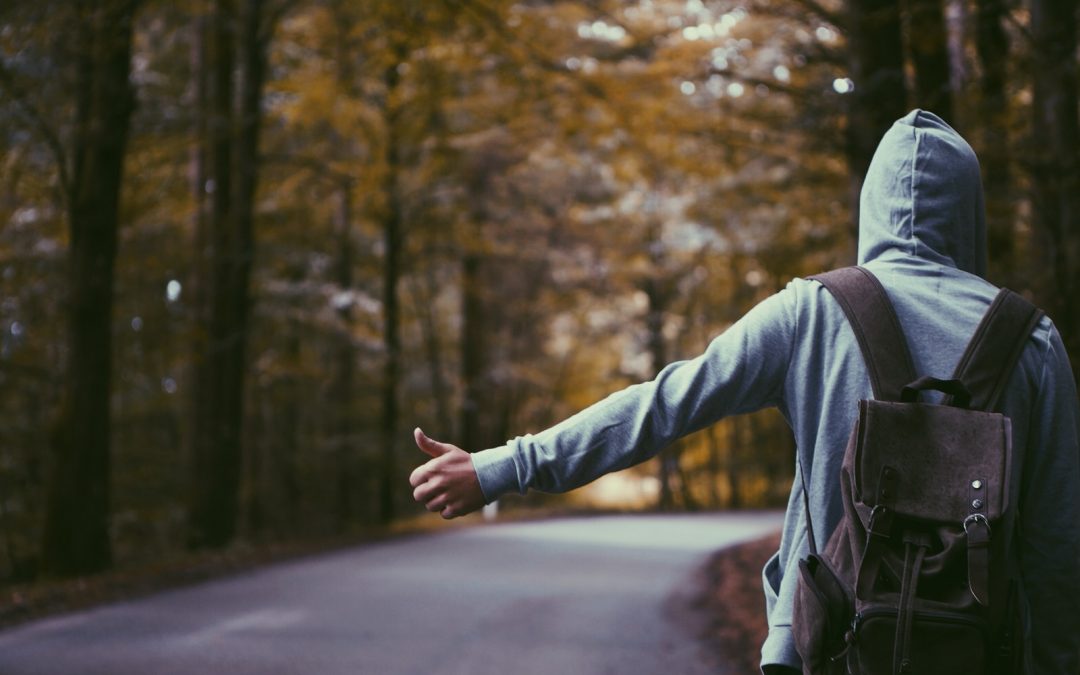This morning, at our stand-up huddle at work, we started talking hitchhikers. We shared scary stories we’d experienced, or heard, of people nearly being murdered or captured or worse. Don’t ask me what’s worst that murder, and actually don’t imagine. This is not that kind of post.
This is what I got thinking about, and have been considering since. Why do we base our entire lives on the maybe, highly unlikely, and very statistically insignificant bad things that could happen? If we were to map out all the abductions, and murders, and generally not great stories of well-meaning folks who have picked up a hitchhiker on the road, would they be statistically significant? Was it more or less likely, when my dear Pa used to go hitchhiking across Canada to visit friends on the coast, for him to have such an encounter? Am I less safe now than he was in the 70s? I realize these questions have great privilege attached to them, as depending upon your current location, the entire idea of hitchhiking could be laughable. But I want to know if we really are in danger. Statistically. For science.
More importantly, why do we always find stories of disfunction or sadness or brokenness and hold those up as the beacons for humanity. HUMANITY IS DOOMED we rattle. We clutch tight to our fear that IT COULD HAPPEN TO ANYONE.
I’m not someone who is ever surprised when people are all the things we fear. When someone shoots up a school, I can see the parts of society that would get them there. When someone is cruel, or violent, I can picture the made-for-TV movie that was their sad and broken upbringing that got them there. These stories never surprise me, cause they are not surprising. What surprises me, is that we expect everyone to be that way. Or at least, are too scared to try another human out, before finding out which type of human they might be. My most favourite part of almost EVERY biography of a serial killer is the line from a long-time co-worker, family or friend that states: I had no idea. They just seemed so “normal”. Whatever that means.
But maybe that’s part of it. We don’t know. We like to know who’s safe, and if there’s no real gauge then NO ONE is safe. Are we all terrified of the what ifs, or the horrible things that we heard happening to that one person in that other place, that we are unable to actually gauge real and present danger? What happened to believing that people are generally honest, and kind, and good and aren’t out to make you into a human-skin-dress with real hair?
At our stand-up huddle, I tried to make a point to that affect. That I want to believe in community. In neighbourliness. Neighbour-ly-ness? Sure. Seems like a word. I want to believe that if I were actually being murdered, or was on fire, or if someone was attempting something, that I could run my blood-soaked broken limping body to a highway (yes just like all the movies) and have someone help me. Or at least have someone stay safely in their car and call the police for me. I want to believe in the humanity of connection, that actually sees strangers as fellow human beings, not a danger or threat. That place sounds nice.
Or maybe, I just want to feel better about picking up hitchhikers. Let this be the marker on my tombstone, should such a fate befall me after picking up a sad, rain-soaked stranger on the side of the road:
She believed in Humanity to the end.

